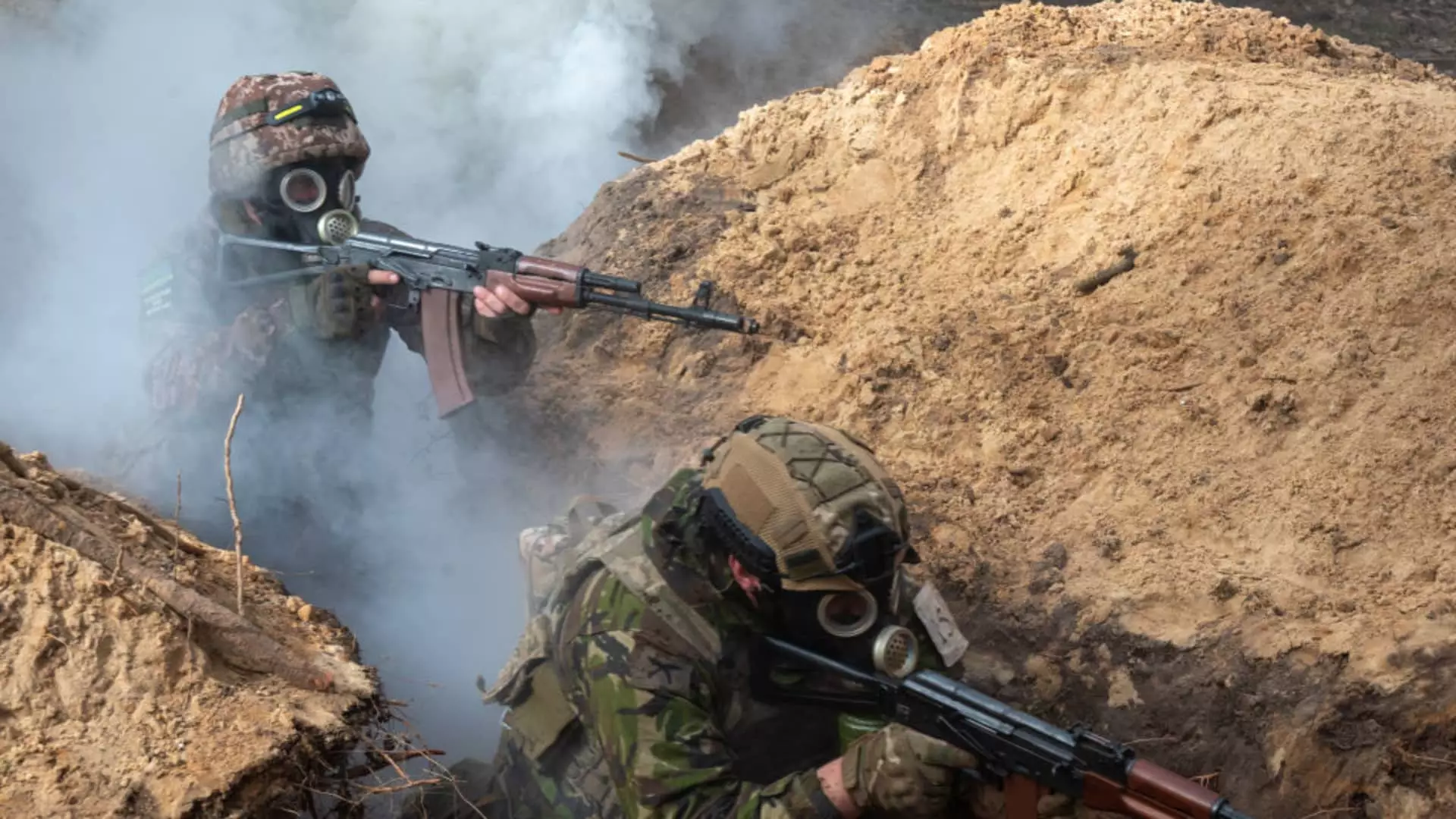The United States has formally accused Russia of using chemical weapons against Ukrainian troops and has announced new sanctions against Russian individuals and entities. This accusation comes after the U.S. State Department released a statement late Wednesday, accusing Russia of violating the Chemical Weapons Convention (CWC) by using the choking agent chloropicrin against Ukrainian forces. The statement also mentioned Russia’s use of riot control agents in Ukraine, which is also in violation of the CWC.
In response to these accusations, the Kremlin’s Press Secretary Dmitry Peskov denied the claims, stating that Russia remains committed to its obligations under international law. He dismissed the accusations as unfounded and lacking evidence. This denial reflects the ongoing tensions between Russia and the United States over the conflict in Ukraine.
Chloropicrin, which was once used as a poison gas in World War I, is now mainly used in agriculture as an insecticide. The use of this “choking agent” inflicts harm on the respiratory tract, causing irritation to the nose, throat, and lungs. When inhaled, chloropicrin can lead to the secretion of fluid in the lungs, essentially drowning those affected. The Organisation for the Prohibition of Chemical Weapons has highlighted the dangers of such chemical agents.
Ukraine has previously accused Russia of using chemical weapons in over 200 attacks on the battlefield in January alone. According to Ukrainian authorities, these attacks have resulted in injuries suspected to be caused by chemical agents. However, Russia has denied these allegations and has accused Ukraine of using chemical weapons as well. Both parties have failed to provide concrete evidence to support their claims.
The use of chemical weapons, including tear gas, is prohibited under international law. The Chemical Weapons Convention, which has been in effect since 1997, bans the production, stockpiling, and use of chemical weapons. Russia, along with 192 other countries, has ratified this convention. The ongoing use of such weapons in the conflict is seen as a disregard for international obligations by the United States.
The U.S. State Department has drawn parallels between Russia’s alleged chemical weapon use in Ukraine and previous incidents involving nerve agent poisoning. These include the poisoning of Kremlin opponents like Aleksey Navalny and Sergei and Yulia Skripal with Novichok nerve agents. Russia has denied any involvement in these incidents, further deepening the divide between the two nations.
The allegations of chemical weapon use in Ukraine have escalated tensions between Russia and the United States. The lack of concrete evidence from either side has made it difficult to verify the claims made. The violations of the Chemical Weapons Convention, if proven, could have serious consequences for both parties. It is important for an independent investigation to be conducted to uncover the truth behind these allegations. The international community must come together to ensure that such violations of international law are not tolerated.



Leave a Reply